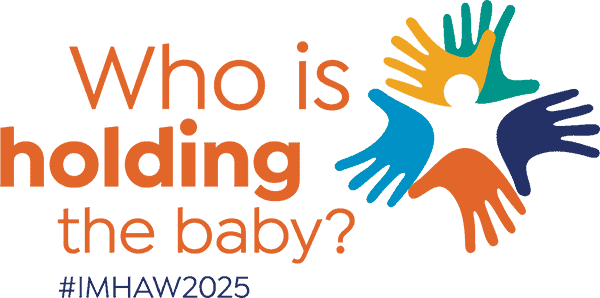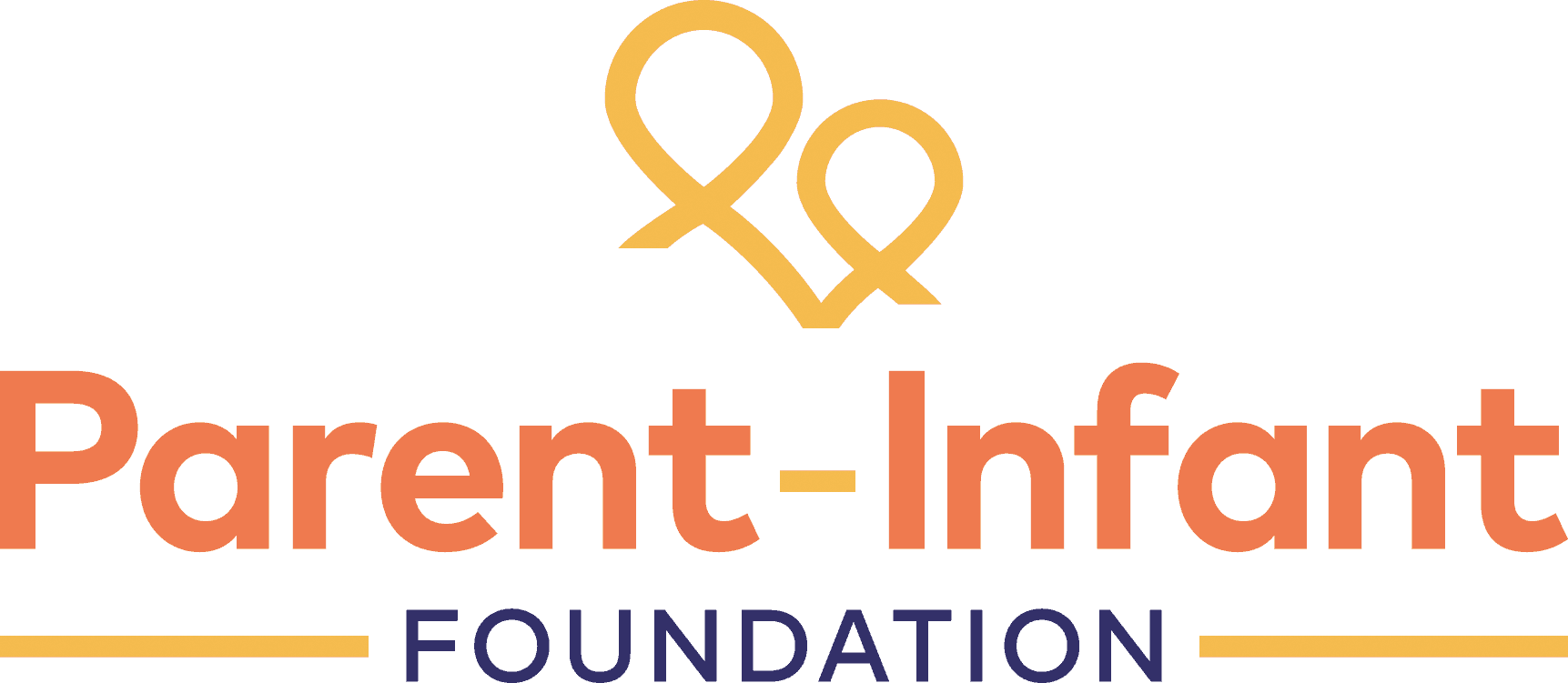Who is holding the baby?
The development of parent-infant teams in the UK
Five years on from our Rare Jewels report, in which the definition of a specialised parent-infant relationship team was first developed, ‘Who is holding the baby?’ provides an up-to-date picture of the growth of specialised parent-infant relationship teams across the UK.
This report uses research, conducted by the Parent-Infant Foundation with parent-infant teams, alongside findings from Freedom of Information requests about service levels for babies.
A baby’s brain develops rapidly during pregnancy and through the first years of life. What happens during this time lays the foundations for future health and happiness. Possibly the most influential factor in early development is the care that babies receive and the relationships they have with their parents or carers.

When there are severe and persistent difficulties in early relationships, this can have a pervasive impact on early development with consequences that can be felt across the life course.
Parent-infant teams play a vital role in ensuring that families who need it receive support to strengthen and repair early relationships. They do this by providing direct therapeutic support to families with the highest levels of need, and through providing training, supervision and consultation to enable practitioners in other services to support babies and parent-infant relationships.
Findings
 There has been a rapid increase in the number of parent-infant teams in the UK in the last five years
There has been a rapid increase in the number of parent-infant teams in the UK in the last five years
There were 27 parent-infant teams known to the Parent-Infant Foundation in 2019. There are now 49, with many more services in development. This rapid growth has often been due to local efforts – the dedication of local clinicians and commissioners who have tenaciously worked to develop local provision. This has also been supported by national policy developments (notably Start for Life in England and the Perinatal and Infant Mental Health Board in Scotland) alongside other funding such as ‘A Better Start’ National Lottery funding in selected areas of England.
 Parent-infant teams have developed in different parts of the system, with different funders
Parent-infant teams have developed in different parts of the system, with different funders
Parent-infant teams have developed in different ways as opportunities have arisen for dedicated and skilled practitioners to establish and grow provision. Many teams are part of public sector provision and some sit in the voluntary sector. Teams have often been forced to be innovative and agile to survive and grow, so they often do not sit in traditional structures and services.
Despite recent policy developments, there is still no consistent funding stream for the development and delivery of parent-infant teams in most of the UK. Most teams have funding from multiple sources, including public service funding streams in mental health, public health and children’s services, and voluntary sector funding. Many teams are funded by health (30/43).
 Parent-infant teams vary hugely in their size, composition, the work they do and the number of families they see
Parent-infant teams vary hugely in their size, composition, the work they do and the number of families they see
The number of families seen directly by parent-infant teams in a year also varies, from under 25 families per year in some teams to over 300 in others.
 Parent-infant relationship support is scarce in other parts of the system
Parent-infant relationship support is scarce in other parts of the system
- Perinatal mental health services (PNMH). PNMH services support mothers who have mental health difficulties, usually at the more severe end of the spectrum. Increasingly, there is also parent-infant relationship support offered in these services. However, this reaches a small proportion of the overall need.
- Although there has been an increase in the number of CAMHS services that accept referrals of 0-2s, our new Freedom of Information requests find the number of babies supported in CAMHS is still very low, with most services still only getting fewer than 10 referrals a year.
- Start for Life funding in England has initiated more parent-infant services to develop in the 75 areas that received funding. This has largely been at the universal and targeted level, with less offered at the specialist, more complex level of need.
 The number of babies seen by parent-infant teams is significantly below the level of need
The number of babies seen by parent-infant teams is significantly below the level of need
Based on the data given at the time, it is estimated that parent-infant teams across the UK offer direct therapeutic support to between 4,400 and 6,500 families each year. It is estimated that the parent-infant teams around the UK are meeting around 4-6% of babies who currently need specialist support.
 Parent-infant teams offer a range of interventions with a growing evidence base
Parent-infant teams offer a range of interventions with a growing evidence base
Parent-infant teams typically offer a range of therapeutic interventions to respond to the different nature and severity of families’ needs. The package of interventions offered is individualised and formulation led. The most common interventions offered by teams include video feedback interventions, parenting programmes such as Circle of Security, and individualised interventions such as parent-infant psychotherapy. Many interventions are dyadic, meaning they work with both parent and baby together.
A third of teams also offer some form of therapeutic support for parents to support their own mental health to help them engage with other interventions which support the parent-infant relationship. Many of the interventions used have a strong evidence base, although there is a need to develop the UK evidence base for the other interventions that are commonly used by parent-infant teams.
 All parent-infant teams join up the early years system through indirect work and, as a result, improve the support offered to many more babies and their families
All parent-infant teams join up the early years system through indirect work and, as a result, improve the support offered to many more babies and their families
Parent-infant teams use their expertise to help other local professionals who work with babies to understand and support parent-infant relationships and to identify issues where they occur (and take appropriate action). They do this via joint care planning, training, consultation and supervision. It is estimated that, collectively, over the last year, teams offered consultancy to over 2,000 professionals, supervision to over 1,500 and training to over 40,000.
 Links between parent-infant teams and perinatal teams
Links between parent-infant teams and perinatal teams
Many parent-infant teams work closely with their local perinatal mental health service. This can take the form of shared cases, care planning, supervision and reflective spaces. Around half of parent-infant teams have shared referral pathways with perinatal mental health teams. This joint working can better enable babies to get the support they need at the right time and place.
 Parent-infant teams are multidisciplinary teams including highly skilled mental health professionals
Parent-infant teams are multidisciplinary teams including highly skilled mental health professionals
All parent-infant teams are multidisciplinary teams that include mental health professionals with specialist expertise in infant mental health and early relationships. This can include clinical psychologists, child psychotherapists, health visitors, social workers, midwives and other allied professionals.
Teams are generally led by a consultant-level clinician. Most staff in teams are band 7 and 8a or equivalent. The data illustrates the high levels of skill needed to lead a parent-infant team.
 Parent-infant teams specialise in working with children from pregnancy to age two
Parent-infant teams specialise in working with children from pregnancy to age two
The majority of teams will see babies and young children from pregnancy to age two; 21 teams also see children older than two, some up to the age of five and a few beyond five. Some professionals have commented that when teams work with older children, babies are deprioritised.
 The focus of teams’ work is often with mothers and there is less data about the involvement of fathers and other parents or carers
The focus of teams’ work is often with mothers and there is less data about the involvement of fathers and other parents or carers
Nearly all teams work primarily with mothers and their babies, with fathers and other parents or carers engaging to a variable extent in assessments and support. However, there are some good examples of purposeful engagement with fathers in some areas. Sometimes teams have limited information about fathers and their engagement because dads are not recorded as a service user on their systems.
 Teams have different levels of engagement with families in the child protection system
Teams have different levels of engagement with families in the child protection system
Babies and young children in the child protection or care system are likely to have experienced the most severe difficulties and disruptions in their early relationships. These vulnerable babies are likely to particularly benefit from support from parent-infant teams.
Nearly all teams accept referrals for babies in the child protection system and for babies who are looked after or adopted. For most of these teams, the families with a baby on a Child Protection Plan were a minority of their service users. However, some teams focus specifically on this group of babies.
Some teams have developed relationships with children’s social care which facilitates referrals. This can include offering consultations and participating in pre-birth panels.
 Teams involve parents in different ways
Teams involve parents in different ways
Around half of teams involve parents in service design and delivery. The ways in which teams work with parents varies. Some have asked parents for user feedback on external facing aspects of the service, such as the service name or parent information leaflet. Other teams had parent voices more embedded into the operation and decision-making across their service.
 Baby’s voice
Baby’s voice
Baby’s or infant’s voice is a process of giving due consideration to the perspective of the baby and what their ‘voice’ would be if they could describe their experience.
Most parent-infant teams said that the baby’s voice was central to their work. Many teams consider the baby’s voice in a variety of ways in clinical assessments, consultations, decision-making forums and to inform service development.



Recommendations
- Government investment should be increased to ensure there are parent-infant teams available to all babies in need across the UK.
- In England, the next 10 Year Plan for the NHS should prioritise infant mental health and include measurable targets to meet the needs of vulnerable babies.
- All integrated care systems in England should explicitly consider and address the needs of babies and young children in their strategies and joint forward plans.
- All mental health trusts in England should be responsible for providing a comprehensive service for all children, which includes the 0–2 age range.
- In Scotland, service specification guidance for parent-infant teams needs to be developed alongside a continued funding commitment.
- In Wales, the Welsh government should commit to the equitable provision of specialised parent-infant relationship teams across all seven regions.
- The Northern Ireland Executive should build on the aspirations set out in the Infant Mental Health Framework (2016) and commit funding to develop services.
- Develop a parent-infant relationship competency framework: Develop a nationally recognised infant mental health or parent and infant relationship (PAIR) workforce competency framework based on the Association of Infant Mental Health (AiMH) Competency Framework.
- Fund clinical placements in parent-infant teams: Provide funding for clinical placements in parent-infant teams from relevant professions in order to grow the workforce.
Further recommendations to grow and develop the infant mental health workforce can be found in our paper, Solutions to Growing the Specialised Parent-Infant Relationship Workforce (2024). This paper closely examines the multi-disciplinary parent-infant relationship workforce and recommends practical solutions for growth.
- Expand the evidence base for parent-infant relationship interventions: Further research is needed to develop the evidence base for interventions that are most used by parent-infant teams in the UK.
- Demonstrate the value of wider indirect work with practitioners in the system. The impact of the ‘wider indirect work’ in the system should be collected and reported to commissioners as a way of demonstrating its value and impact on babies.
- Reach vulnerable babies through dedicated pathways. Babies in the child protection system should be reached by developing specific pathways in partnership with social care.
- Develop shared pathways between parent-infant and perinatal mental health teams. Parent-infant and perinatal mental health teams should develop shared pathways and collaborative working practices to enable babies to get access to support most appropriate to their needs.
- Babies should be reached as early as possible, including antenatally. Parent-infant relationship difficulties should be identified and supported in pregnancy and dedicated pathways with midwives and other professionals established.
- Collect data on underrepresented groups. To effectively address the needs of underrepresented groups, (notably fathers, same-sex parents and ethnicity of the parents in a locality), data should be recorded and analysed by services.
- Develop engagement activities with fathers and other parents or carers. Engagement activities with fathers and other parents or carers who play a caregiving role for their baby should be developed.
- Use creative co-production methods to help develop services. The ‘voice of babies’ and families should be utilised in co-producing services, including targeting those from marginalised groups.
- Hold the clinical record in the name of the baby. Clinical records should be held in the baby’s name where possible and linked to the parent or carers record.
- Bring the ‘voice of the baby’ to the heart of all work. The perspective of the baby should be incorporated into all aspects of policy and practice.
Browse the full report below, or download the PDF by clicking here.
